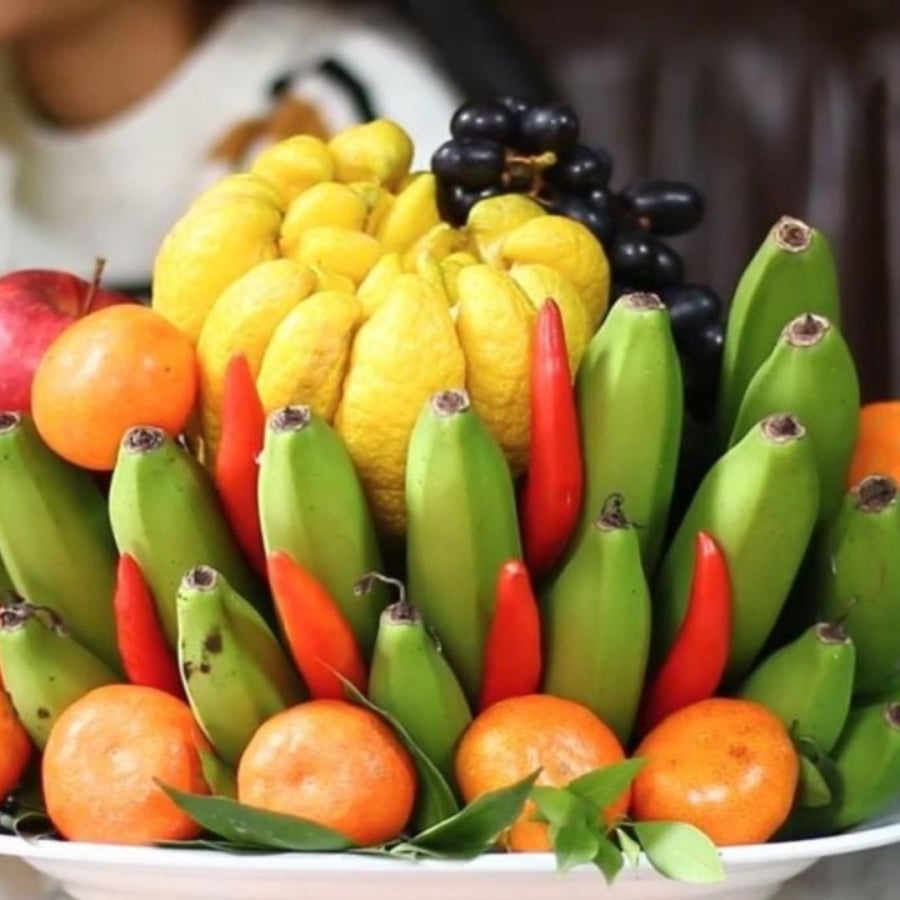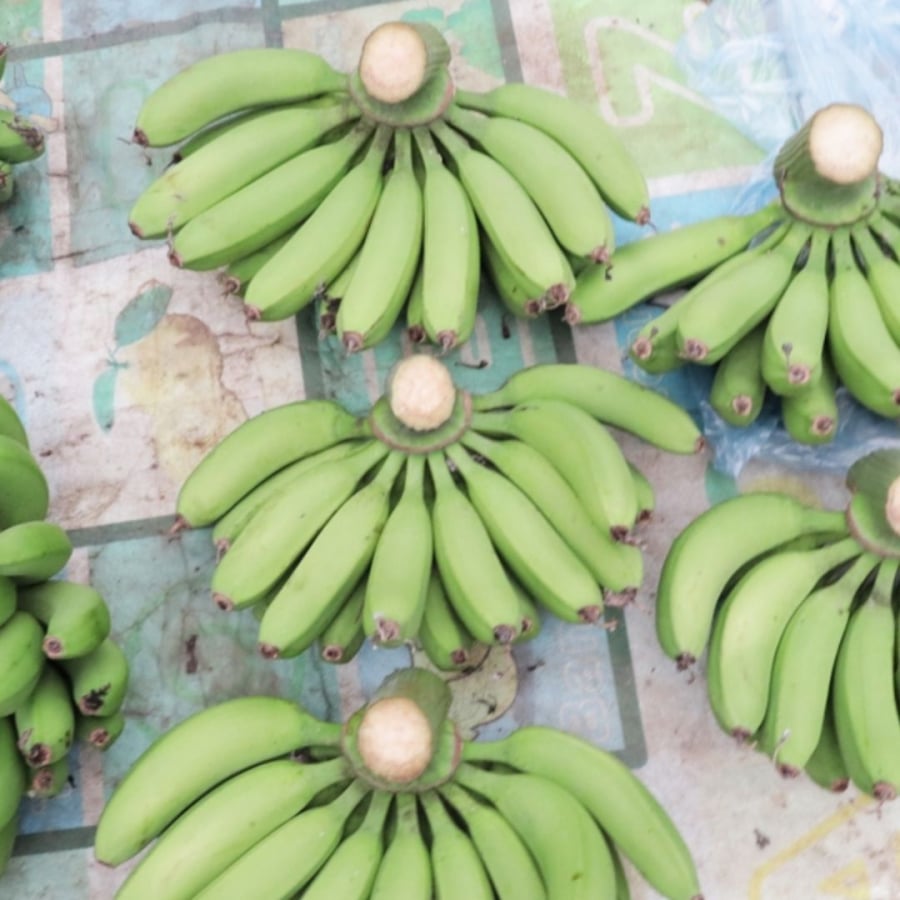Banana is a popular fruit in worship and is considered an important centerpiece of the five-fruit tray. With its graceful, curved shape resembling an embracing arm, a bunch of bananas symbolizes protection, luck, and abundance for the new year. Therefore, choosing a beautiful bunch of bananas for offerings is not merely a habit but also a meaningful cultural tradition.
1. The Sacred Significance of Bananas on the Five-Fruit Tray
During significant occasions such as Tet Nguyen Dan, the first and fifteenth of July, and Vu Lan, bananas are always present on the ancestors’ altar. Especially during Tet, the image of a green banana bunch embracing other fruits such as pomelo, orange, and Buddha’s hand has become a familiar symbol. The curved banana bunch resembles a hand receiving heavenly blessings, implying abundance and protection for the family.

Because of this special meaning, many families, especially the elders, take time to find a large, beautiful, sufficiently curved, and full banana bunch. Even when the price of green bananas reaches hundreds of thousands of dong, they are still sought after, as it is believed that without a nice bunch of bananas, the year ahead may not be smooth, and one may encounter misfortune.
2. Why Combining Two Banana Bunches for Offerings Is Considered Taboo
Due to the desire for aesthetically pleasing bananas, some people who cannot find a satisfactory bunch may consider combining two smaller ones to create a larger one. While this may make the fruit tray look more balanced and impressive, it is considered inauspicious from a feng shui and spiritual perspective.
In worship, odd numbers are preferred as they symbolize growth and are considered yang numbers. Even numbers, especially two and four, are often seen as unlucky and carry negative connotations. Combining two banana bunches results in an even number, which is not considered harmonious with feng shui principles. Moreover, joining two bunches often requires the use of nails, wire, or sharp objects, which are considered major taboos on the altar as metal can bring negative energy and is not suitable for a sacred space.
Additionally, if not carefully combined, the banana bunches may separate after a few days or may not be sturdy enough to hold the other fruits, leading to accidental spills during offerings, which is undesirable during Tet.

3. Taboos to Avoid When Choosing Bananas for Offerings
To enhance the solemnity of the five-fruit tray and bring good luck, keep the following in mind when selecting bananas for worship:
- Avoid ripe or almost-ripe bananas: Ripe bananas tend to fall off the stem, become soft or rotten, and affect the surrounding fruits. Especially since the five-fruit tray is usually kept for several days, ripe bananas can detract from the solemnity of the offerings.
- Do not choose an even-numbered bunch: Many people focus only on the shape and color of the bananas and forget to count the number of fruits. However, according to feng shui beliefs, it is preferable to choose a bunch with an odd number of fruits to symbolize growth and prosperity.
- Avoid overly curved or unbalanced banana bunches: An excessively curved or lopsided bunch will make the fruit tray less aesthetically pleasing and may detract from the feng shui symbolism.
- Do not use the wrong type of banana: In Northern and Central Vietnam, the dwarf banana is favored for offerings due to its curved shape and uniform, attractive fruit. However, in Hue, this type of banana is avoided, and instead, the banana varieties such as “chuối sứ,” “chuối mốc,” or “chuối ngự” are chosen. In Southern Vietnam, bananas are not included in the five-fruit tray because the word for banana (“chuối”) sounds similar to “chúi,” which suggests decline and bad luck.
- Avoid bunches with discolored, underripe, or overripe bananas: The ideal bananas for offerings should be moderately green, plump, and free from spots or bruises. Underripe bananas will not ripen properly, and overripe bananas may quickly spoil.
While the act of worship is more about sincerity than the quantity or quality of offerings, for families who value rituals, especially new daughters-in-law, preparing a well-presented and culturally appropriate five-fruit tray, including selecting bananas that align with feng shui principles, can create a positive impression and bring peace of mind to the family.
Customs and beliefs vary across regions, so when choosing bananas for offerings, it is advisable to consult with elders in the family and understand the local customs to avoid any taboos related to spiritual practices.
Reference for spiritual contemplation



































